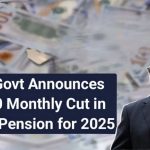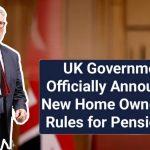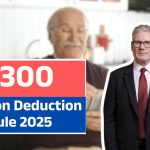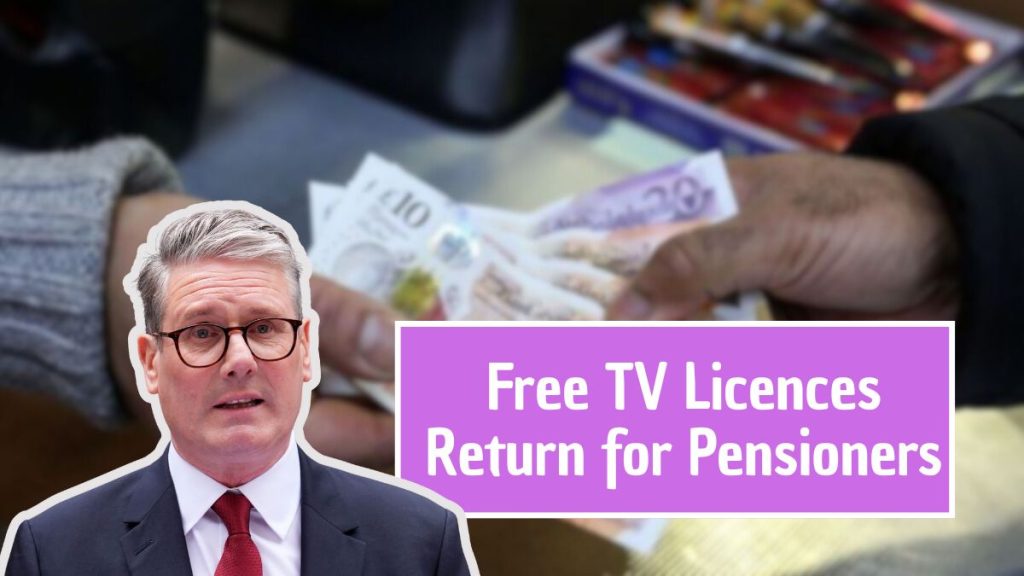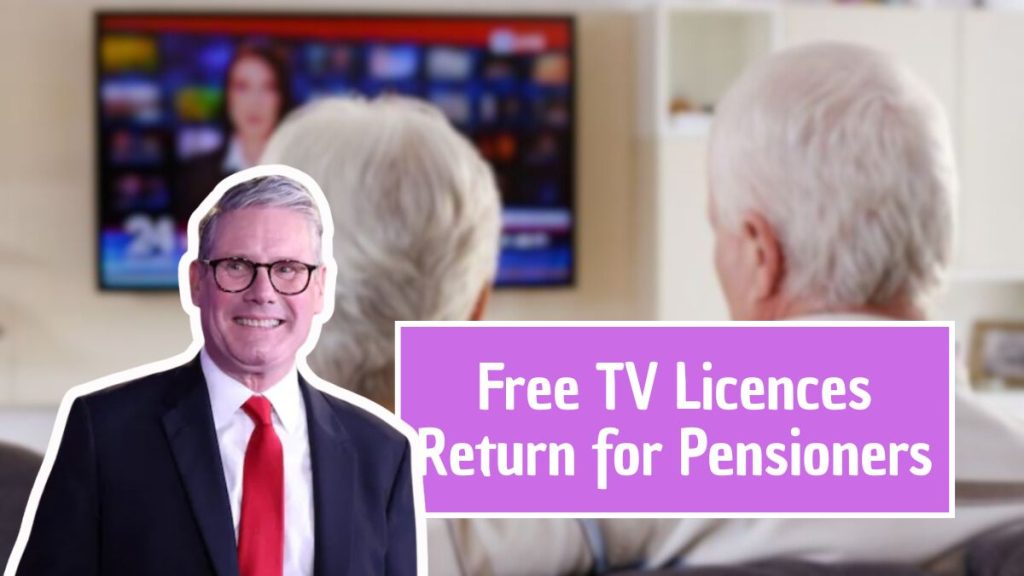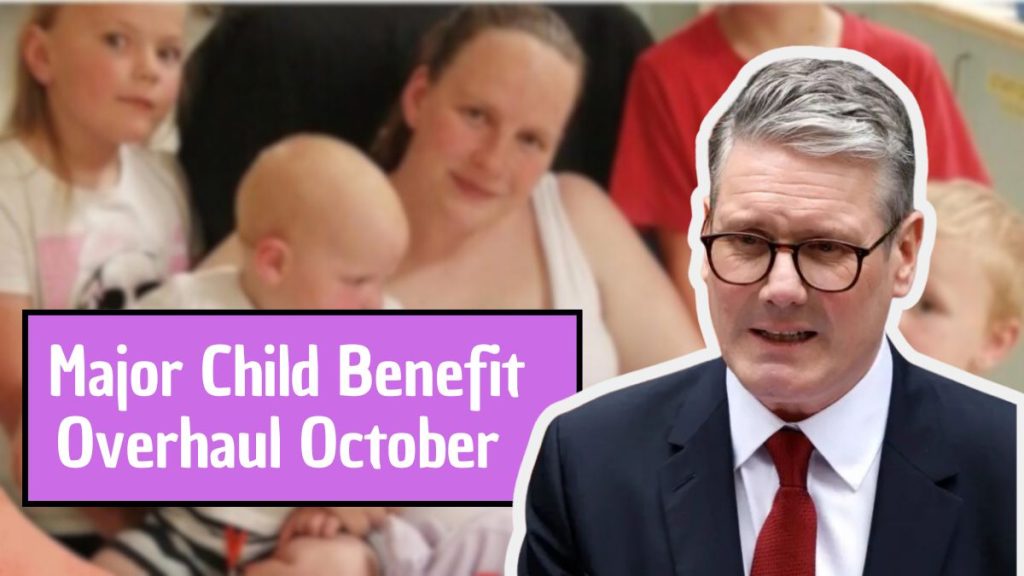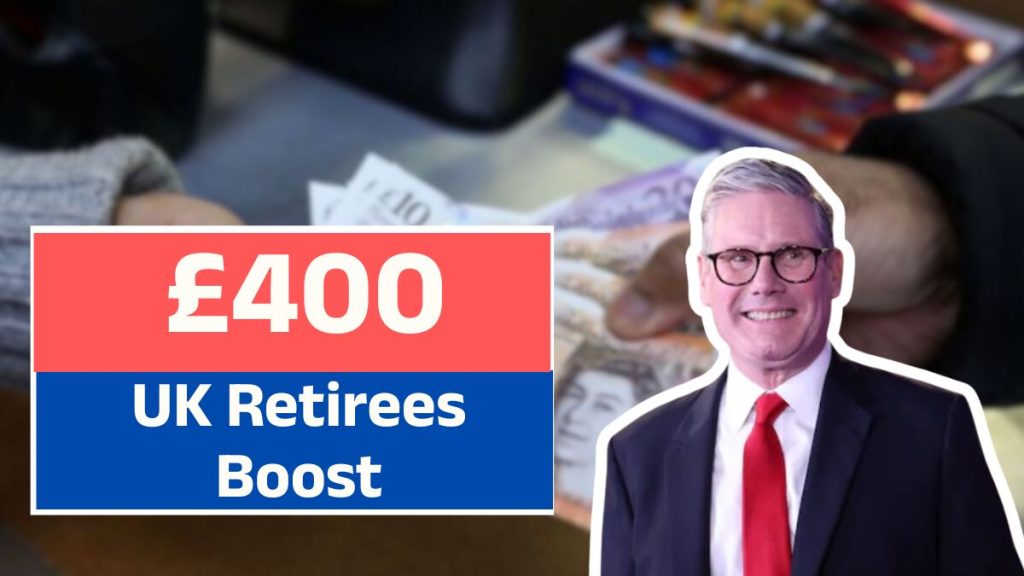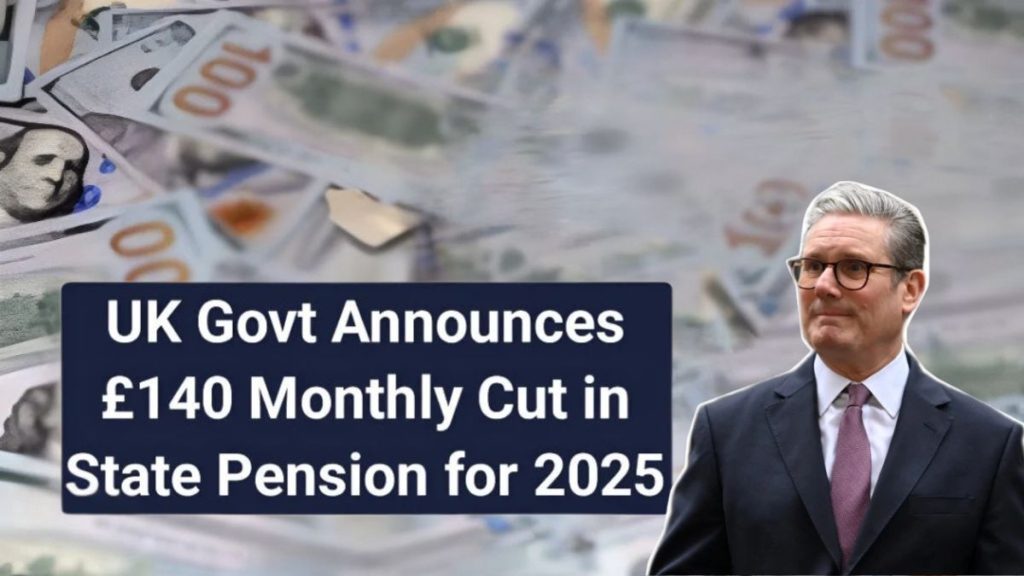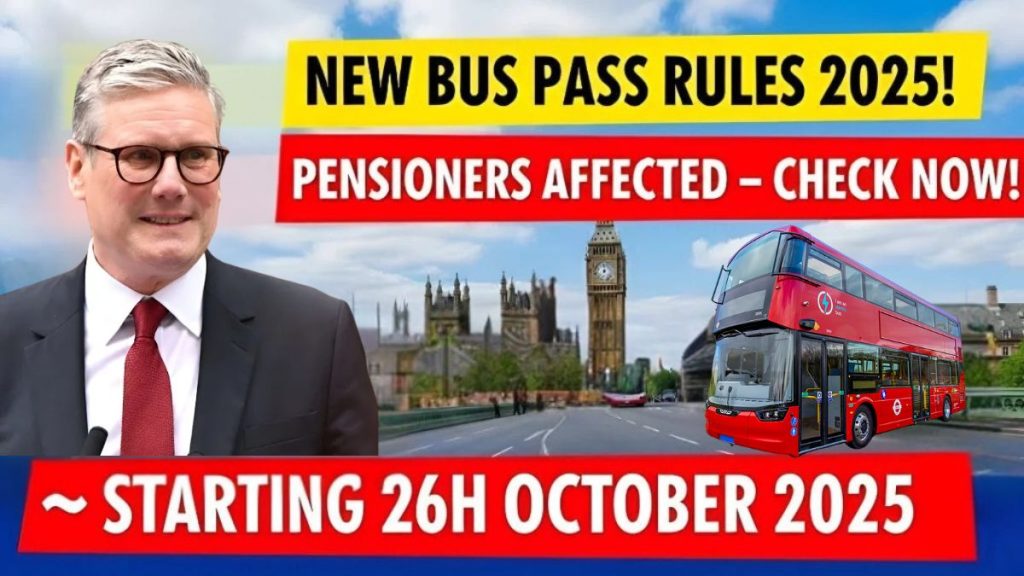In a landmark announcement, the UK government has confirmed that the universal free TV licence for everyone aged 75 and over will return from April 2025. This long-awaited policy reversal marks a major shift from previous restrictions and delivers much-needed relief to millions of elderly citizens across the country.
The reinstated benefit ensures that all qualifying seniors can enjoy free access to live TV and BBC iPlayer services without needing to pass a means test or claim Pension Credit. The government says the move reflects its renewed commitment to supporting pensioners during a time of rising living costs and persistent inflation.
The Policy Background: How the Free TV Licence Began
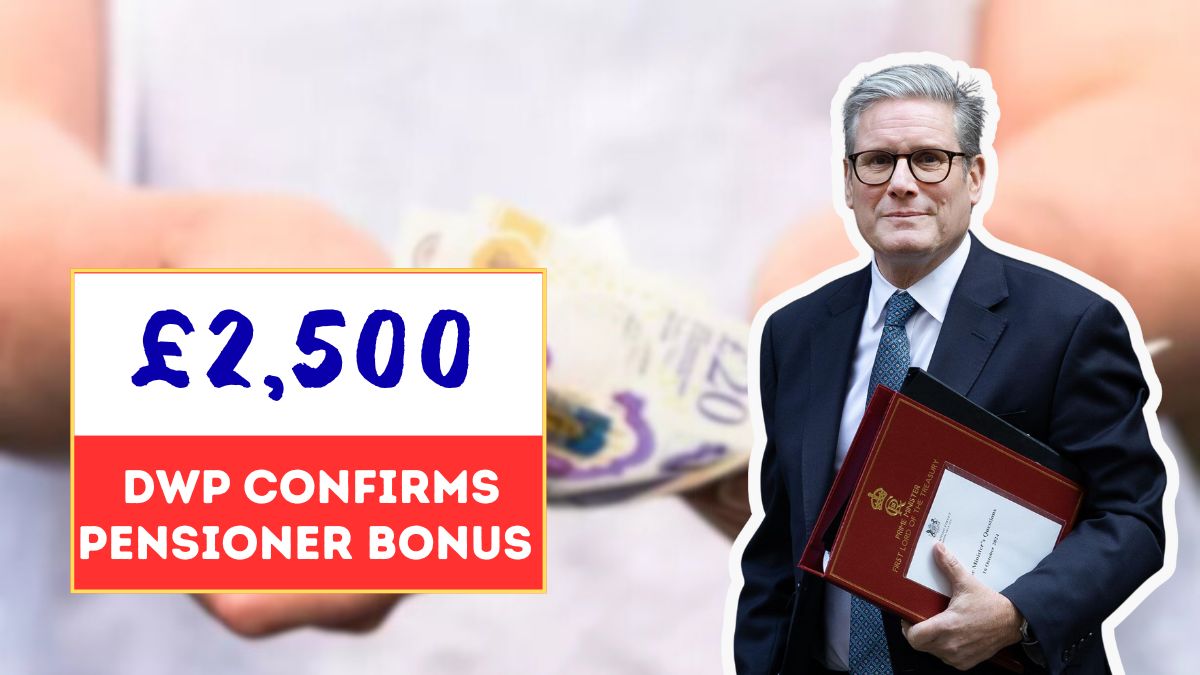
The free TV licence scheme was first introduced in 2000 as a way to support older adults, recognising that television serves as a key source of information, companionship, and entertainment—especially for those living alone.
For nearly two decades, every person aged 75 and above was entitled to watch live television or use BBC iPlayer without paying the annual licence fee, which today stands at £169.50.
However, in 2020, the policy changed dramatically. Responsibility for funding the scheme was transferred from the government to the BBC, and eligibility was restricted to seniors over 75 who were also receiving Pension Credit. This shift excluded hundreds of thousands of pensioners who, while not eligible for Pension Credit, still struggled financially.
Why the 2025 Change Matters
The 2025 reinstatement marks the end of the means-tested model, which critics had called unfair and overly complex. From April 2025 onward, every senior aged 75 or older in the UK will once again enjoy automatic entitlement to a free TV licence—a return to the inclusive system that existed before 2020.
According to government sources, approximately 4.2 million pensioner households are expected to benefit from this change, with funding of around £700 million per year set aside to support the policy.
What Will Change from April 2025
The reinstated scheme will introduce several key improvements:
- Universal Eligibility: All residents aged 75 and above will qualify, regardless of income or benefits.
- No Means Test: There will be no link to Pension Credit or other benefits.
- Automatic Enrolment: Eligible households will have their licences updated automatically.
- Simplified Administration: TV Licensing will collaborate with government records to confirm eligibility, reducing paperwork.
- Full Government Funding: The Treasury will finance the scheme directly, removing the burden from the BBC.
This move is designed to simplify the process while providing pensioners with financial relief at a time when many are struggling with increasing household expenses.
Who Qualifies for the Free TV Licence in 2025
The eligibility criteria for the reinstated scheme are straightforward and inclusive.
| Eligibility Requirement | Description |
|---|---|
| Age | Must be 75 or older by April 1, 2025 |
| Residency | Must live in the United Kingdom |
| Income or Benefits | No income test or benefit link required |
| Household Coverage | All residents at the same address as the eligible licence holder are covered |
This means that if one qualifying person aged 75+ lives in a household, the entire household benefits from the free TV licence.
How Pensioners Can Claim the Free Licence
The process will be largely automatic for most eligible seniors. TV Licensing will update records based on existing government databases such as the Department for Work and Pensions (DWP) and HMRC.
However, pensioners should take the following steps to ensure smooth processing:
- Update Personal Details: Make sure your name, date of birth, and address are correct in government and TV Licensing records.
- Watch for Notifications: If your licence does not automatically renew, you may receive a letter asking for simple proof of age or residency.
- Respond Promptly: Provide requested information promptly to avoid delays in activation.
- Contact TV Licensing: For assistance, call the official helpline or visit www.tvlicensing.co.uk.
By removing manual applications for most people, the government aims to make the process quick, automatic, and hassle-free.
Impact on Pensioners and Their Families
The reinstatement of the universal free TV licence will have both financial and social benefits for elderly citizens.
- Financial Relief: Pensioners will save up to £174.50 per year, the expected licence cost from April 2025.
- Reduced Isolation: Television remains a primary source of social engagement and mental stimulation for many older people.
- Simplified Access: With automatic enrolment, seniors no longer face complex forms or eligibility checks.
- Government Support: The decision highlights renewed political attention to the financial struggles of retirees.
For many pensioners living on fixed incomes, this reinstatement could free up money for essentials like heating, groceries, or medication.
TV Licence Fee Changes for Others in 2025
While pensioners over 75 will receive free licences, the rest of the population will see a small fee increase from 1 April 2025.
| Licence Type | New Fee (2025) | Current Fee (2024) |
|---|---|---|
| Colour TV Licence | £174.50 | £169.50 |
| Black & White Licence | £58.50 | £57.00 |
| Disabled Persons (50% discount) | To be confirmed in early 2025 | £84.75 |
The increase aligns with inflation and supports BBC operations under the government’s broadcasting charter.
Other Free or Discounted Licence Categories
In addition to seniors aged 75 and over, several other groups will remain eligible for free or reduced-cost TV licences:
- Blind or severely sight-impaired individuals: 50% discount continues to apply.
- Residents in care homes: Eligible for a concessionary licence through group arrangements.
- Northern Ireland residents: May qualify under special community assistance schemes.
These categories will remain active alongside the reinstated pensioner scheme.
Government’s Rationale Behind the Decision
According to official statements, the government’s decision to reinstate the free licence is rooted in fairness and social inclusion. Ministers emphasized that television is not just entertainment—it’s a lifeline for many elderly people.
“Restoring this benefit ensures that older citizens can stay informed and connected without worrying about rising costs,” one government spokesperson noted.
The policy is also seen as part of a wider government effort to ease cost-of-living pressures and address public dissatisfaction with previous welfare cutbacks.
Reaction from Advocacy Groups and the Public
Charities such as Age UK and Independent Age have hailed the announcement as a “victory for fairness.”
Age UK’s Director, Caroline Abrahams, said the return of the universal free licence “shows that the government has listened to the voices of millions of older people who felt abandoned by the 2020 decision.”
Public sentiment has been overwhelmingly positive, with many seniors expressing relief and gratitude for the restored support. For those living on limited pensions, the annual licence fee represented a major expense.
Economic Impact of the Reinstatement
Reintroducing the free TV licence will cost the Treasury an estimated £700 million per year, but analysts argue the wider social and mental health benefits justify the expenditure.
Television access has been linked to improved well-being among elderly populations, particularly for those who are isolated or housebound. By removing financial barriers, the government aims to support both mental health and community engagement among retirees.
Moreover, this policy could reduce demand for local social services that often step in to support isolated seniors.
How the BBC Fits into the New Arrangement
Unlike the previous model, where the BBC bore the financial burden, the 2025 reinstatement will be fully funded by the government.
This shift is expected to strengthen the BBC’s financial position and ensure that funding for other programming and services remains unaffected. In turn, the broadcaster is expected to maintain its commitment to high-quality, diverse programming accessible to all audiences.
Steps Pensioners Should Take Before April 2025
To prepare for the policy change, pensioners should:
- Check their current TV licence status on the TV Licensing website.
- Ensure records are accurate with updated addresses and personal details.
- Watch for official communications from TV Licensing about automatic renewal.
- Avoid scams: Official bodies will never ask for payment details via email or text.
By taking these precautions early, pensioners can ensure a smooth transition to free coverage in April.
Looking Ahead
The return of the free TV licence for everyone over 75 represents one of the most significant social welfare reversals in recent years.
It underscores the government’s recognition of the unique challenges facing older citizens and the essential role of television in maintaining connection, information access, and emotional well-being.
As April 2025 approaches, millions of pensioners can look forward to turning on their favourite shows without worrying about the bill—a small but meaningful victory for fairness and dignity.
FAQs on Free TV Licence for Over-75s in 2025
1. When will the free TV licence for over-75s be reinstated?
The universal free TV licence will return on 1 April 2025.
2. Who qualifies for the free TV licence?
All UK residents aged 75 or over will automatically qualify, regardless of income or benefits.
3. Do I need to apply for the free licence?
No. The process is automatic for most pensioners. TV Licensing will update records based on government data.
4. How much will other people pay for a TV licence in 2025?
The standard colour TV licence will cost £174.50 per year from April 2025, up from £169.50.
5. Will this scheme be funded by the BBC?
No. The reinstated free licence will be fully funded by the UK government, not the BBC.




